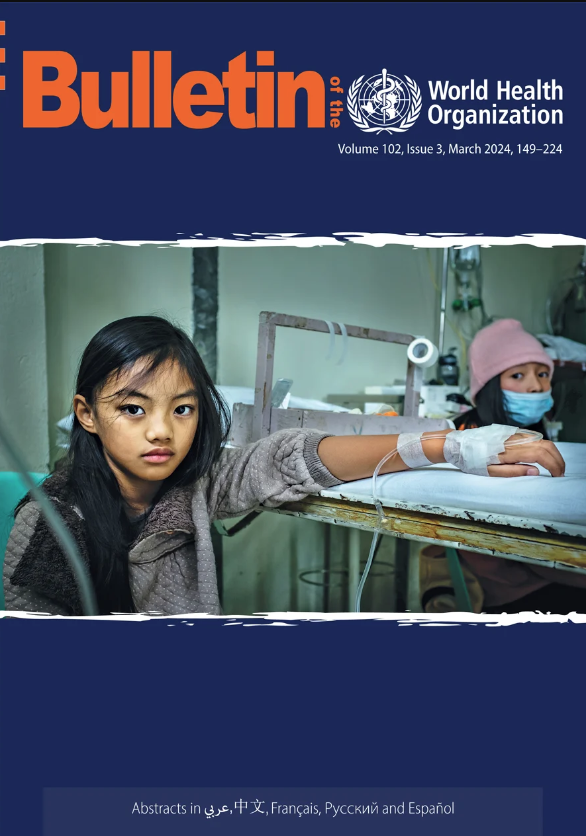A proposal to recognize investment in breastfeeding as a carbon offset.
IF 8.4
2区 医学
Q1 PUBLIC, ENVIRONMENTAL & OCCUPATIONAL HEALTH
引用次数: 0
Abstract
Policy-makers need to rethink the connections between the economy and health. The World Health Organization Council on the Economics of Health for All has called for human and planetary health and well-being to be moved to the core of decision-making to build economies for health. Doing so involves valuing and measuring what matters, more and better health financing, innovation for the common good and rebuilding public sector capacity. We build on this thinking to argue that breastfeeding should be recognized in food and well-being statistics, while investments in breastfeeding should be considered a carbon offset in global financing arrangements for sustainable food, health and economic systems. Breastfeeding women nourish half the world's infants and young children with immense quantities of a highly valuable milk. This care work is not counted in gross domestic product or national food balance sheets, and yet ever-increasing commercial milk formula sales are counted. Achieving global nutrition targets for breastfeeding would realize far greater reductions in greenhouse gas emissions than decarbonizing commercial milk formula manufacturing. New metrics and financing mechanisms are needed to achieve the health, sustainability and equity gains from more optimal infant and young child feeding. Properly valuing crucial care and environmental resources in global and national measurement systems would redirect international financial resources away from expanding carbon-emitting activities, and towards what really matters, that is, health for all. Doing so should start with considering breastfeeding as the highest quality, local, sustainable first-food system for generations to come.关于承认对母乳喂养的投资可作为碳抵消的建议。
决策者需要重新思考经济与健康之间的联系。世界卫生组织全民健康经济学理事会呼吁将人类和地球的健康与福祉置于决策的核心位置,以建设健康经济。要做到这一点,就必须重视和衡量重要事项,提供更多更好的卫生资金,为共同利益而创新,并重建公共部门的能力。在此基础上,我们认为母乳喂养应在食品和福利统计中得到认可,而在可持续食品、健康和经济体系的全球融资安排中,对母乳喂养的投资应被视为一种碳补偿。母乳喂养的妇女为世界上一半的婴幼儿提供了大量宝贵的乳汁。这项护理工作没有被计入国内生产总值或国家粮食收支平衡表,但不断增长的商业配方奶粉销售额却被计入了国内生产总值或国家粮食收支平衡表。实现母乳喂养的全球营养目标所实现的温室气体减排量远大于商业配方奶粉生产的去碳化。要实现更优化的婴幼儿喂养所带来的健康、可持续性和公平收益,需要新的衡量标准和融资机制。在全球和国家衡量体系中对关键护理和环境资源进行适当估值,将使国际财政资源从扩大碳排放活动转向真正重要的方面,即全民健康。要做到这一点,首先应将母乳喂养视为子孙后代最优质的、本地的、可持续的第一食品系统。
本文章由计算机程序翻译,如有差异,请以英文原文为准。
求助全文
约1分钟内获得全文
求助全文
来源期刊

Bulletin of the World Health Organization
医学-公共卫生、环境卫生与职业卫生
CiteScore
11.50
自引率
0.90%
发文量
317
审稿时长
3 months
期刊介绍:
The Bulletin of the World Health Organization
Journal Overview:
Leading public health journal
Peer-reviewed monthly journal
Special focus on developing countries
Global scope and authority
Top public and environmental health journal
Impact factor of 6.818 (2018), according to Web of Science ranking
Audience:
Essential reading for public health decision-makers and researchers
Provides blend of research, well-informed opinion, and news
 求助内容:
求助内容: 应助结果提醒方式:
应助结果提醒方式:


